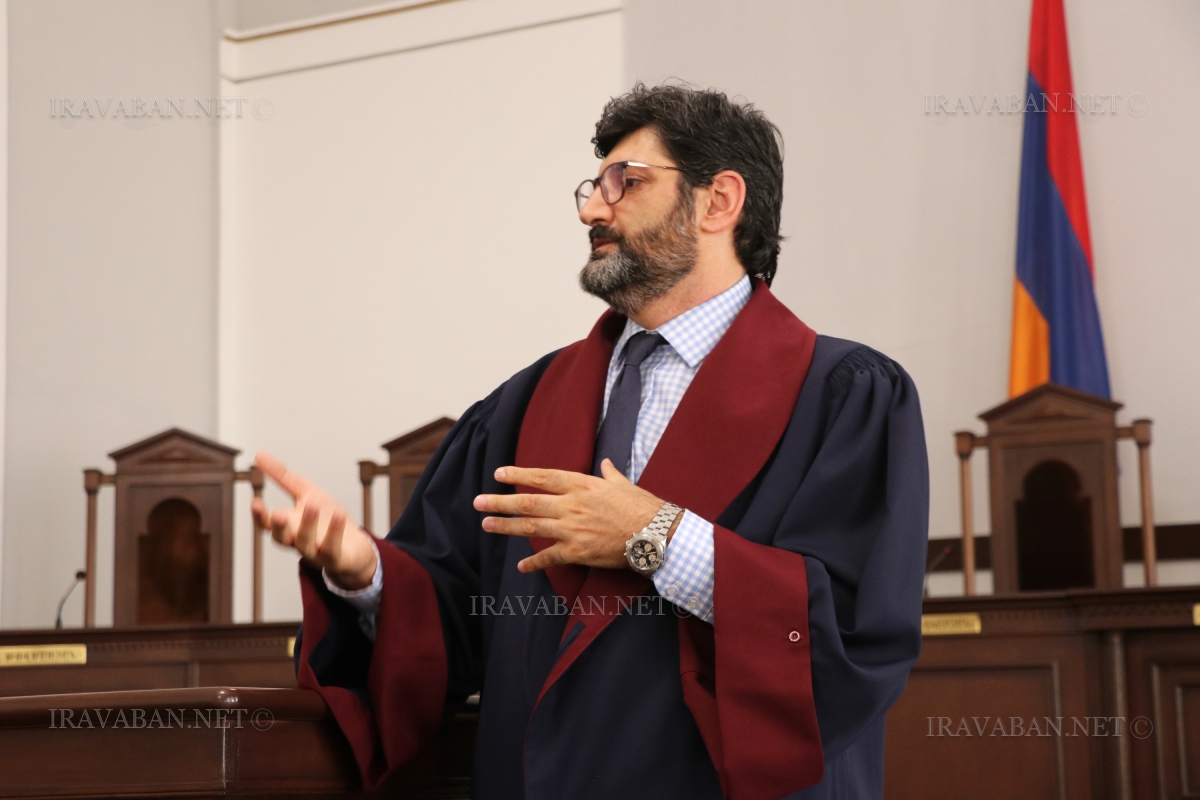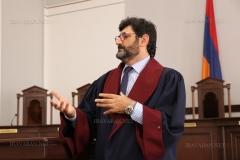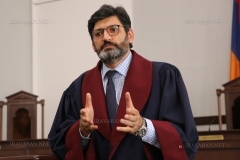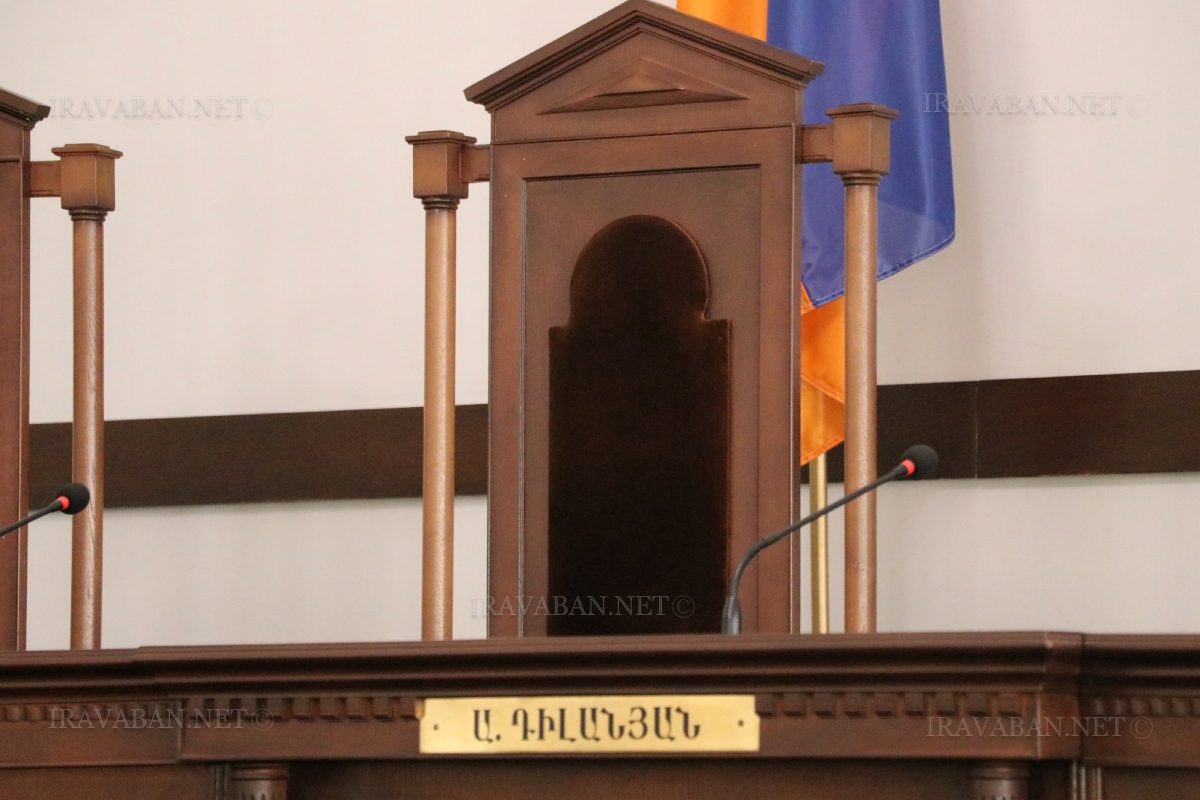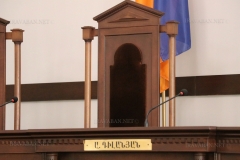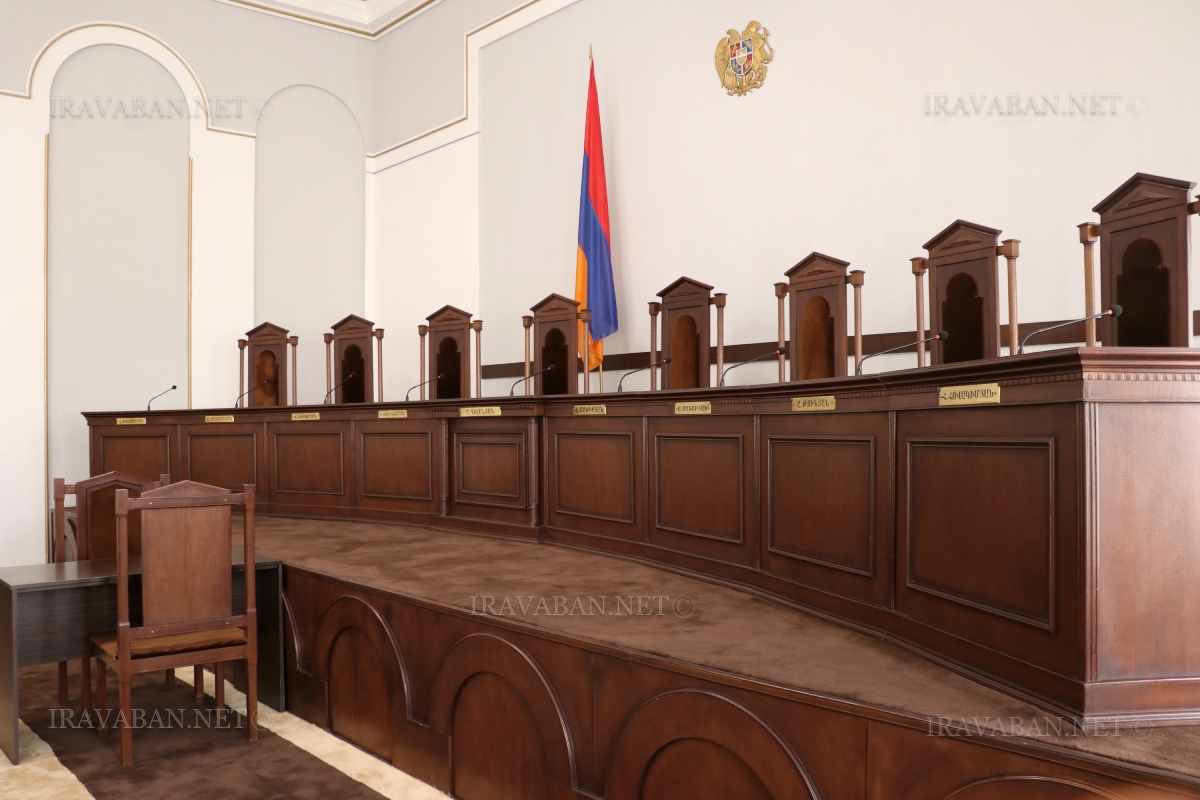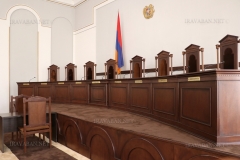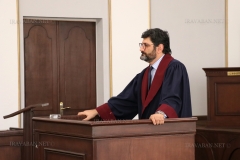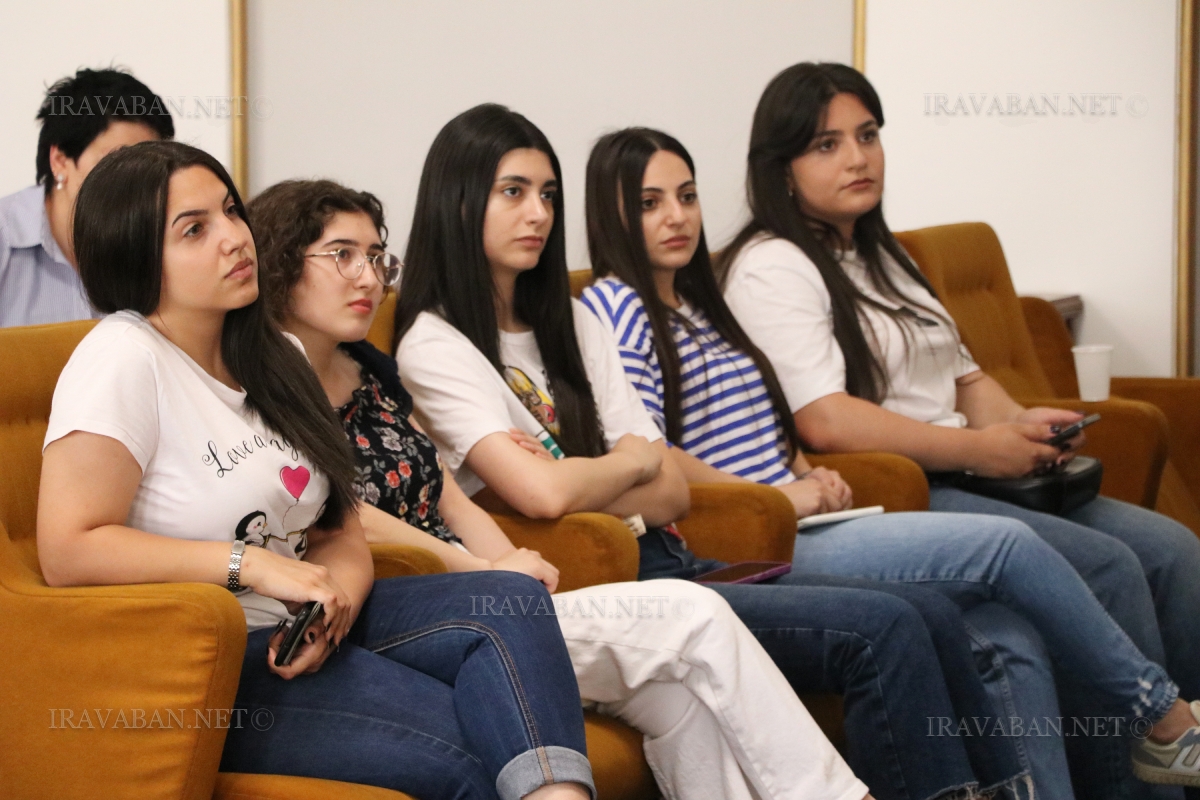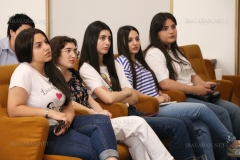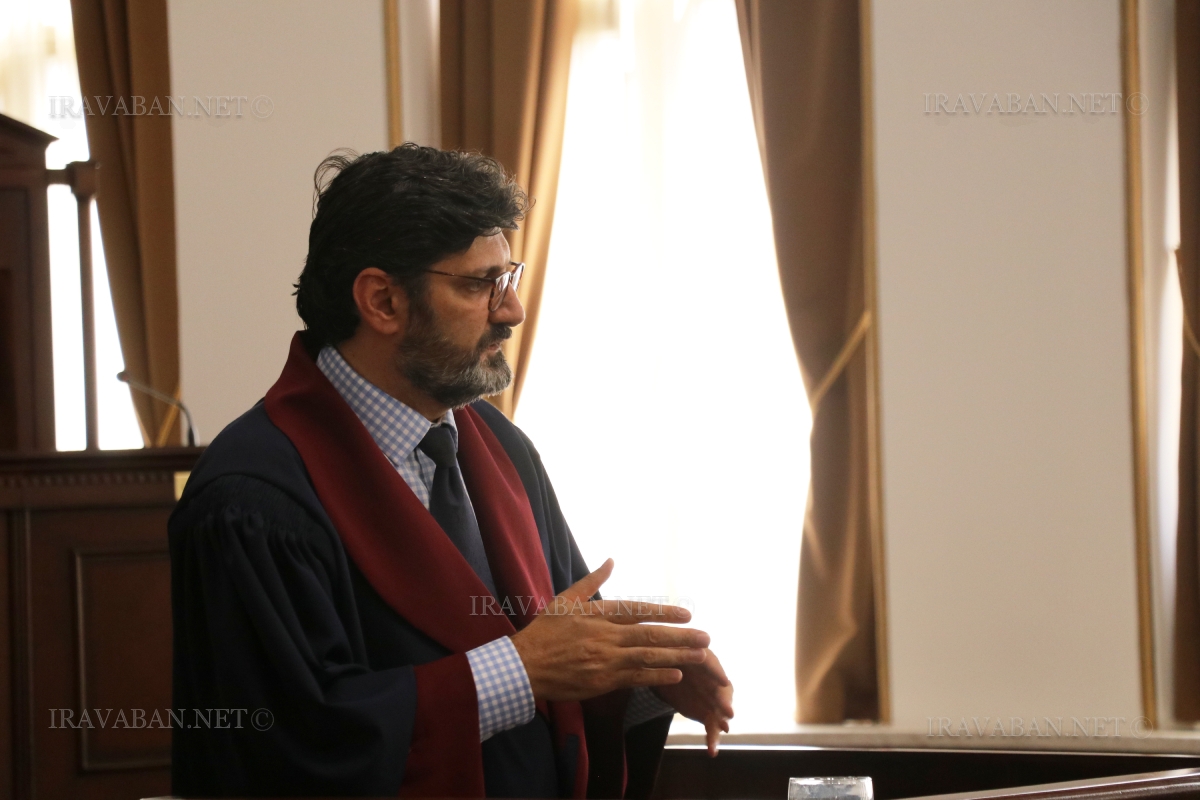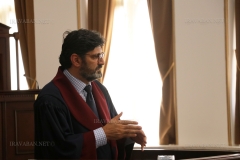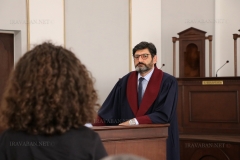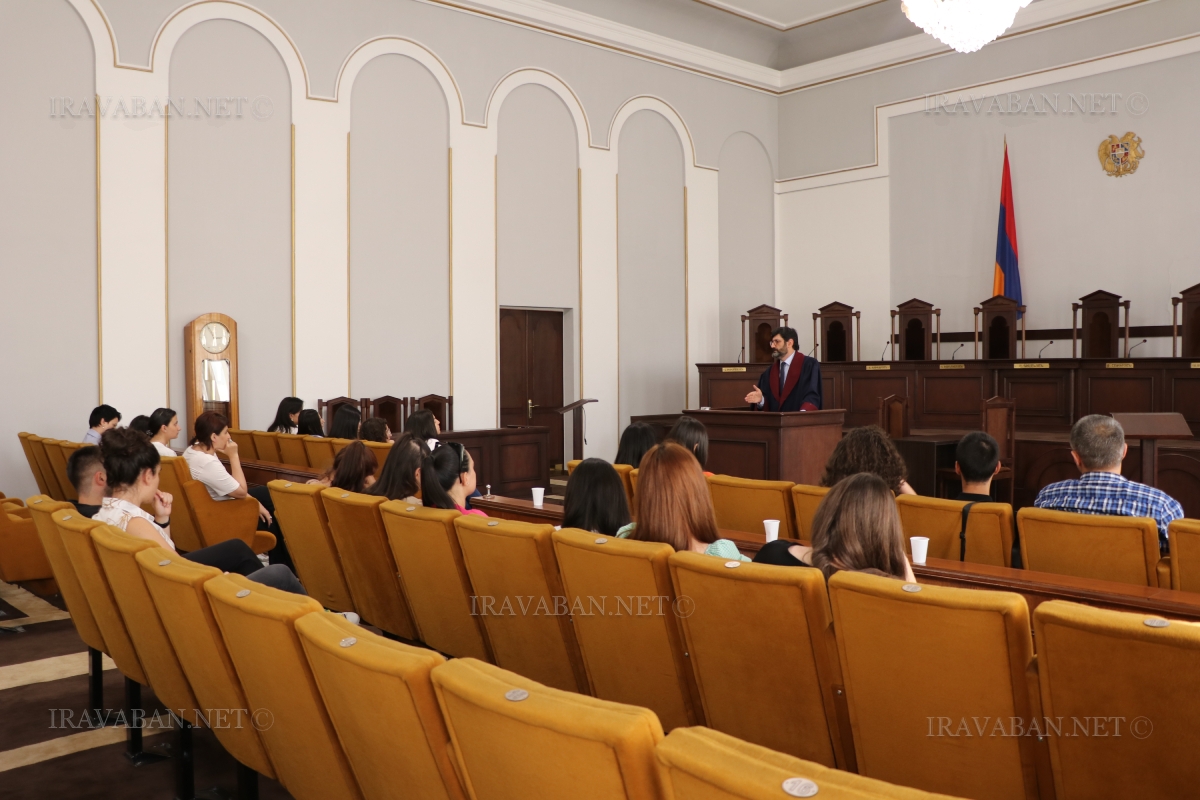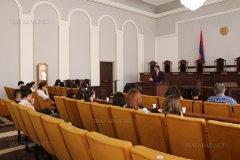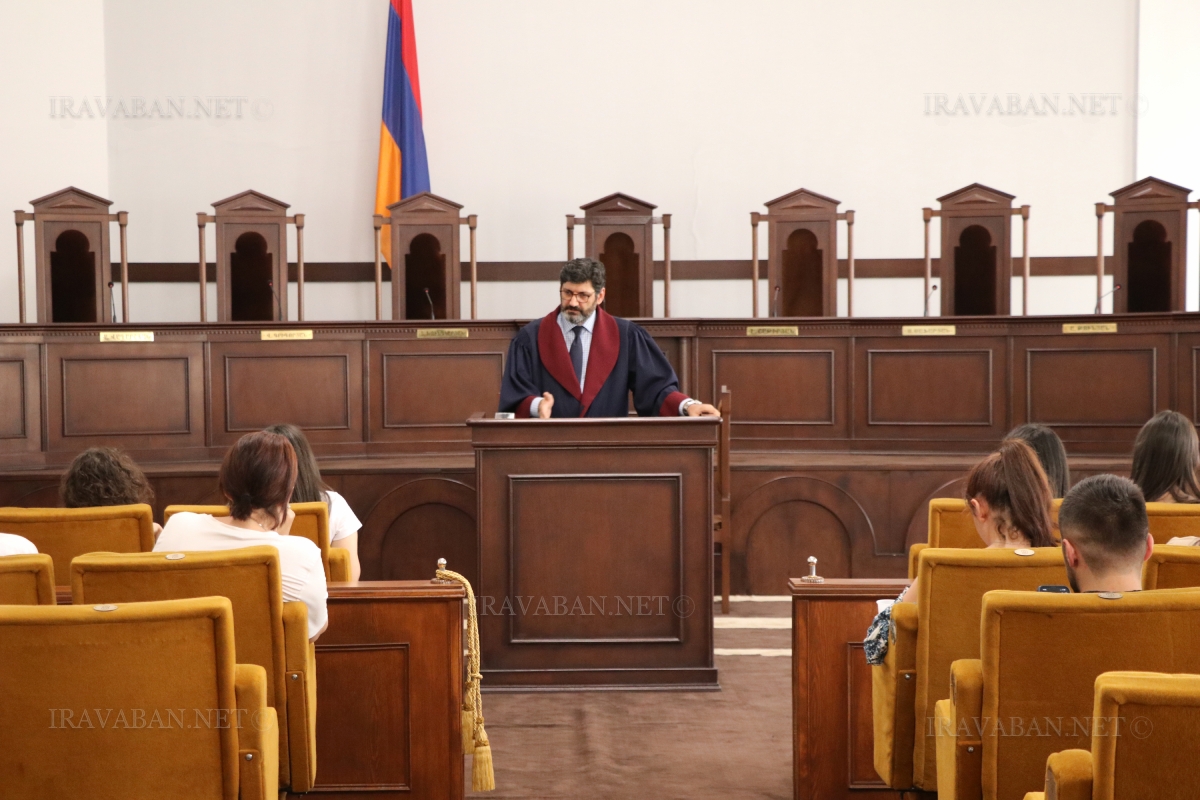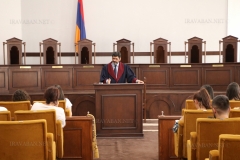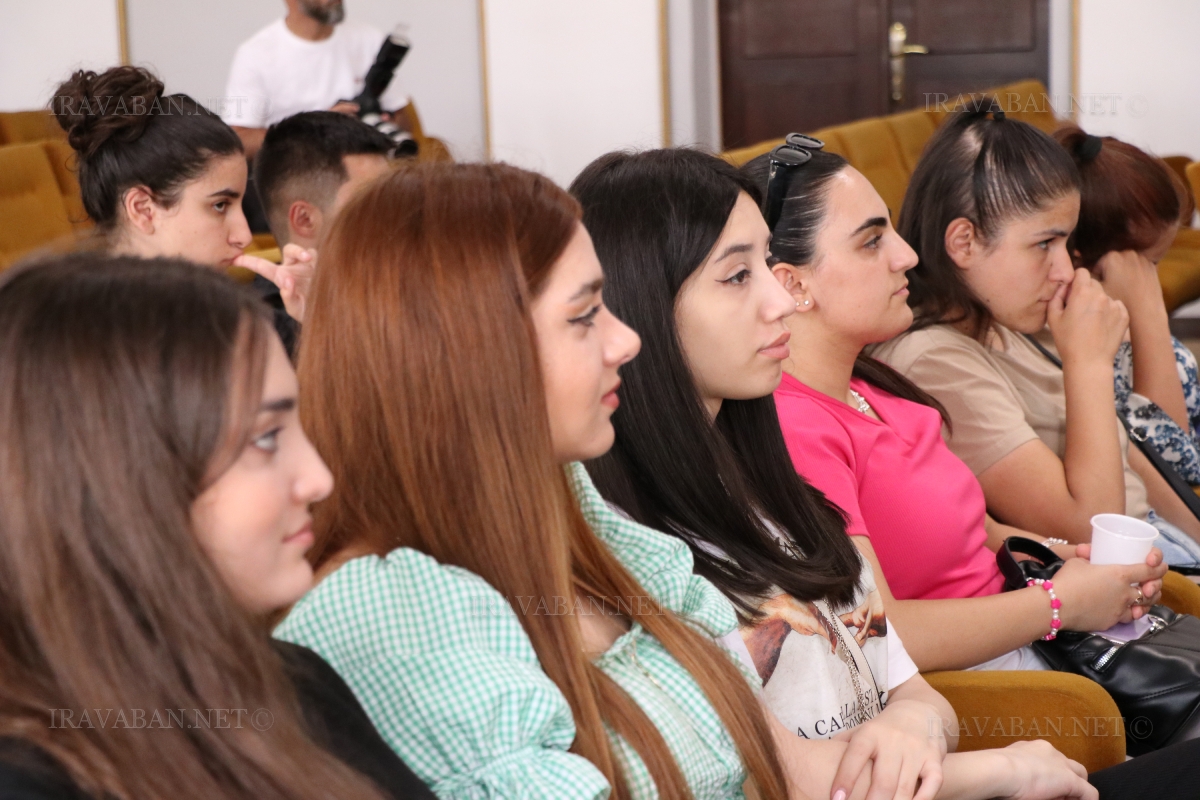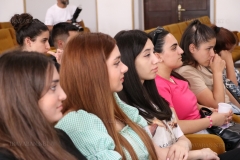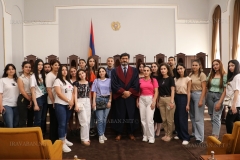The Students of the Anti-Corruption School for Young Leaders met with Vahe Grigoryan, Vice President of the Constitutional Court
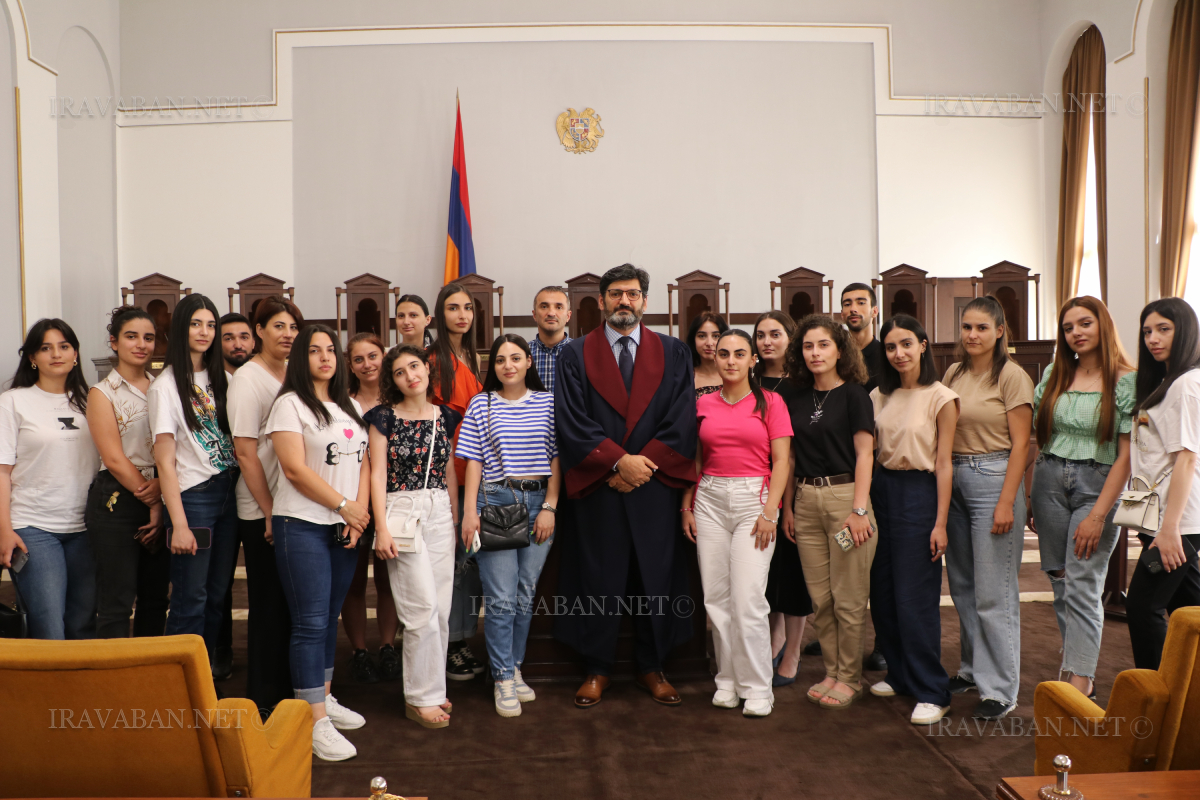
On 24 July, the students of the 9th stream of the Anti-Corruption School for Young Leaders, the 1st anti-corruption professional educational initiative operating in the Republic of Armenia, within the framework of the master classes and practical skills development phase of the 9th stream of the school visited the Constitutional Court of the RA, where Vice President of the Constitutional Court, Judge Vahe Grigoryan received them.
Only a few of the students had been to the Constitutional Court until this moment. At the beginning of the meeting, answering the questions, Vahe Grigoryan presented the structure of the CC and the purpose of its activity.
He noted that justice, by and large, is a meaningful and comprehended ritual that civilization has created over the centuries. The judge came to the meeting with the students in his robe, which, according to him, is part of that ritual. “We talk about justice with public representatives in this hall, where it is implemented.”
Vahe Grigoryan asked the participants of the meeting why they think constitutional justice is necessary. “Why should the people want to keep such an institution? With such broad powers, extending some of those powers to state government bodies.
As a result of the question and answer, the students came to the conclusion that it is an important counterbalance. 9 judges of the CC can counterbalance the laws passed by 107 deputies and have wide powers.
“There are 3 values that are absolutely recorded in the Constitution and which protection is our daily work. This Court was created to protect those values. They are democracy, human rights and freedoms, and the rule of law. They are interconnected. Considering all this, there is no other state body and institution that can replace the Constitutional Court in this role” Vahe Grigoryan said.
The students asked the judge questions about the need to make changes to the Constitution, as well as the timing of the publication of the decision on the conformity or non-conformity of the Law on Confiscation of Property of Illegal Origin with the Constitution. Regarding the last question, Vahe Grigoryan mentioned that the amount of materials to be studied is quite large, therefore it is not possible to give a specific or approximate date.
Notably, the training in the Anti-Corruption School for Young Leaders will be organized in the following phases:
- ONLINE TRAINING PHASE, during which the students will pass a basic anti-corruption course consisting of 25 topics through the school’s online anti-corruption training platform. Those students who have completed all the knowledge test questionnaires and received the appropriate points for completing the online training will be considered completed the online training phase.
- MASTER CLASS AND PRACTICAL SKILLS DEVELOPMENT PHASE, during which students who have successfully completed the advanced stage of school will be divided into groups and each group will conduct a study, monitoring or investigation on one of the in-depth anti-corruption topics. During this phase, the work will be organized in the form of group meetings, discussions, and meetings with representatives of the sectors and other relevant bodies and organizations. Attendees will learn a range of innovative tools and gain related skills. At this stage, mentoring for groups is planned.
- PUBLIC AWARENESS PHASE, during which students who have successfully completed the practical skills development phase of the school will have the opportunity to disseminate their anti-corruption knowledge among young people through public awareness seminars.
- ADVANCED TRAINING PHASE, during which the best 15-20 participants who have achieved high results in the online training phase of the school, successfully completed the in-depth interview phase and are selected, will participate in the outreach (out of Yerevan) in-depth anti-corruption training. The in-depth training phase of the school will consist of the modules: “Anti-Corruption Advanced Training” and “Pillars of National Identity”.
- FINAL PHASE, during which the students, who have successfully completed the practical skills development and public awareness stages of the school, will present their research and public awareness results to the reputable jury and the public.
Students who have passed and successfully graduated from all five phases of the School will be awarded GRADUATION CERTIFICATES of Anti-Corruption School for Young Leaders.
“The Armenian Lawyers’ Association” NGO is organizing the Anti-Corruption School for Young Leaders in cooperation with the CSO Anti-Corruption Coalition of Armenia.
The information partner of the Anti-Corruption School for Young Leaders is Iravaban.net, independent professional news website.

